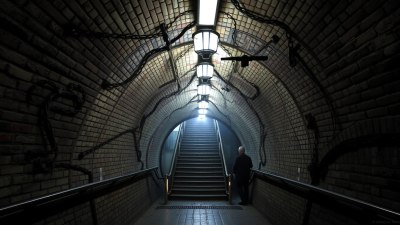What Traveling to Ancient Sites Teaches Us About the Modern World
Explore the insights gained from visiting ancient sites and their relevance to today's society.

Image by cristina-gottardi on Freepik
Traveling to ancient sites offers profound lessons that resonate through time, revealing insights about civilization, humanity, and the modern world. The act of walking through remnants of the past allows us to connect with diverse cultures and understand their values, challenges, and achievements. In this article, we delve into the teachings that ancient sites impart, reflecting on their significance in shaping our current realities.
Understanding Diversity and Cultural Exchange
Ancient sites often represent a confluence of cultures, showcasing how civilizations interacted, traded, and influenced one another. By visiting sites like the Silk Road, the Roman Empire’s remnants, or the ruins of ancient Mesopotamia, travelers gain a tangible sense of the interconnectedness that has existed for millennia. This cultural exchange paved the way for technological advancements, art, and philosophy. In our modern globalized world, understanding this historical interplay can foster a deeper appreciation for cultural diversity and the benefits of collaboration. It teaches us that cooperation across borders can lead to progress and innovation, a lesson more relevant than ever in today’s geopolitical landscape.
Lessons in Resilience and Adaptation
Ancient civilizations faced numerous challenges, from natural disasters to invasions, yet many demonstrated remarkable resilience and adaptability. For instance, the inhabitants of Pompeii rebuilt their lives after a volcanic eruption, while the builders of the Great Wall of China defended their territory against invasions. Visiting these sites reminds us that humanity has an incredible capacity to adapt to changing circumstances. In our contemporary world, where we face challenges such as climate change, technological disruption, and societal shifts, understanding how previous generations overcame their struggles can inspire modern solutions. The durability of ancient structures is also a testament to the importance of sustainable practices and long-term planning, concepts that are crucial as we navigate the complexities of modern life.
Value of Preservation and Sustainability
The preservation of ancient sites underscores the importance of maintaining our cultural heritage for future generations. Traveling to these locations emphasizes the need for sustainable tourism practices that respect both the sites and the local communities. For example, UNESCO World Heritage sites often face threats from over-tourism, leading to deterioration and loss of historical value. The lessons learned from ancient preservation efforts can inform contemporary practices, encouraging us to consider the impact of our travel choices. By prioritizing sustainability, we not only protect our cultural heritage but also promote a deeper connection to the places we visit. This mindset can be applied to various modern challenges, such as environmental sustainability and responsible consumption.
Inspiration from Architectural Mastery
Many ancient sites showcase remarkable architectural achievements that reflect the ingenuity of their creators. The Pyramids of Giza, the Parthenon, and the aqueducts of Rome all demonstrate advanced engineering and artistic skills that continue to inspire architects and builders today. Analyzing these structures provides insights into the aesthetics, technical capabilities, and societal values of the time. In a world eager for innovation, looking back at what our ancestors achieved can fuel creativity and inspire new ways of thinking. Modern architecture can learn from ancient methods, combining timeless techniques with contemporary materials and innovations to create sustainable structures that resonate with the past while meeting present needs.
Insights on Governance and Society
Ancient sites often reflect the political systems, social hierarchies, and governance models of their time. The ruins of Athens, for example, showcase the early principles of democracy, while the centralized power of ancient Egypt illustrates the complexities of governance. By exploring these historical systems, we can gain valuable perspectives on modern governance, civic engagement, and social responsibility. Understanding how ancient societies dealt with issues of power, justice, and citizenship can inform our approach to participatory governance today. These lessons emphasize the ongoing relevance of engaging citizens in public discourse and the value of accountability, principles essential for thriving democracies.
Cultural Identity and Heritage
Visiting ancient sites fosters a sense of identity and belonging, both for individuals and communities. It allows travelers to connect with their roots, understanding how history shapes cultural narratives. In a rapidly changing world, where globalization often homogenizes culture, embracing our unique heritage can promote pride and acceptance. This aspect of travel reminds us that our identities are influenced by the past, and honoring that history helps preserve its significance. Engaging with ancient cultures encourages an appreciation for the diversity of human experience and invites reflection on how our personal and collective stories intertwine.
Transformation Through Reflection
Journeys to ancient sites often provoke introspection and reflection, presenting travelers with opportunities to contemplate their place in the world. The sheer magnitude of historical achievement can inspire individuals to consider their own aspirations and contributions. For example, standing amidst the ruins of Machu Picchu can evoke a sense of wonder about human potential and the interconnectedness of existence. In a fast-paced, technology-driven society, these moments of pause allow for deeper introspection, encouraging individuals to ponder their values, relationships, and goals. Such reflections can lead to positive transformations, fostering a clearer sense of purpose in everyday life.
Bridging Past and Present
In our rapidly evolving world, understanding the lessons of ancient civilizations is crucial for creating a sustainable future. Ancient sites remind us that the human experience spans generations, offering timeless wisdom that remains relevant today. By recognizing the achievements and challenges faced by our ancestors, we can utilize their insights to address contemporary issues while honoring our shared history. The past is not isolated; it is interwoven with our present and future dilemmas. In our quest for progress, incorporating age-old wisdom into modern decision-making can yield innovative solutions, leading to a harmonious coexistence with both our heritage and the world around us.
Traveling to ancient sites teaches us invaluable lessons about diversity, resilience, sustainability, and governance, enriching our understanding of the modern world. By actively engaging with history, we can cultivate a more profound appreciation for our shared humanity and learn to navigate contemporary challenges with wisdom drawn from the past. As we forge ahead, let us carry the teachings of ancient civilizations into our future, ensuring that we remain connected to our roots while striving for a more enlightened, sustainable world.











